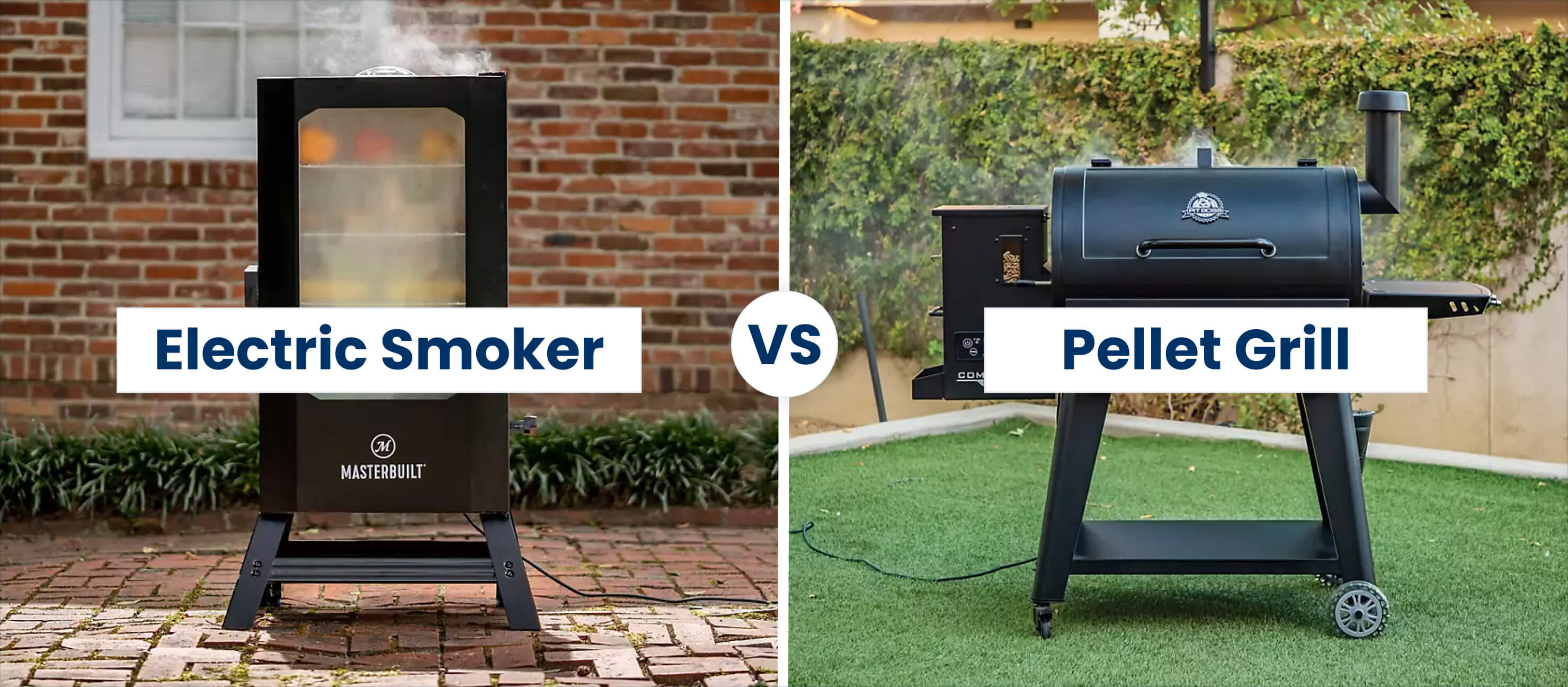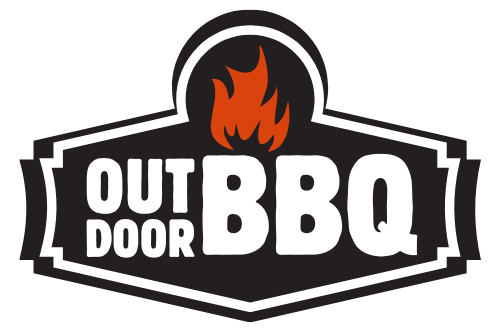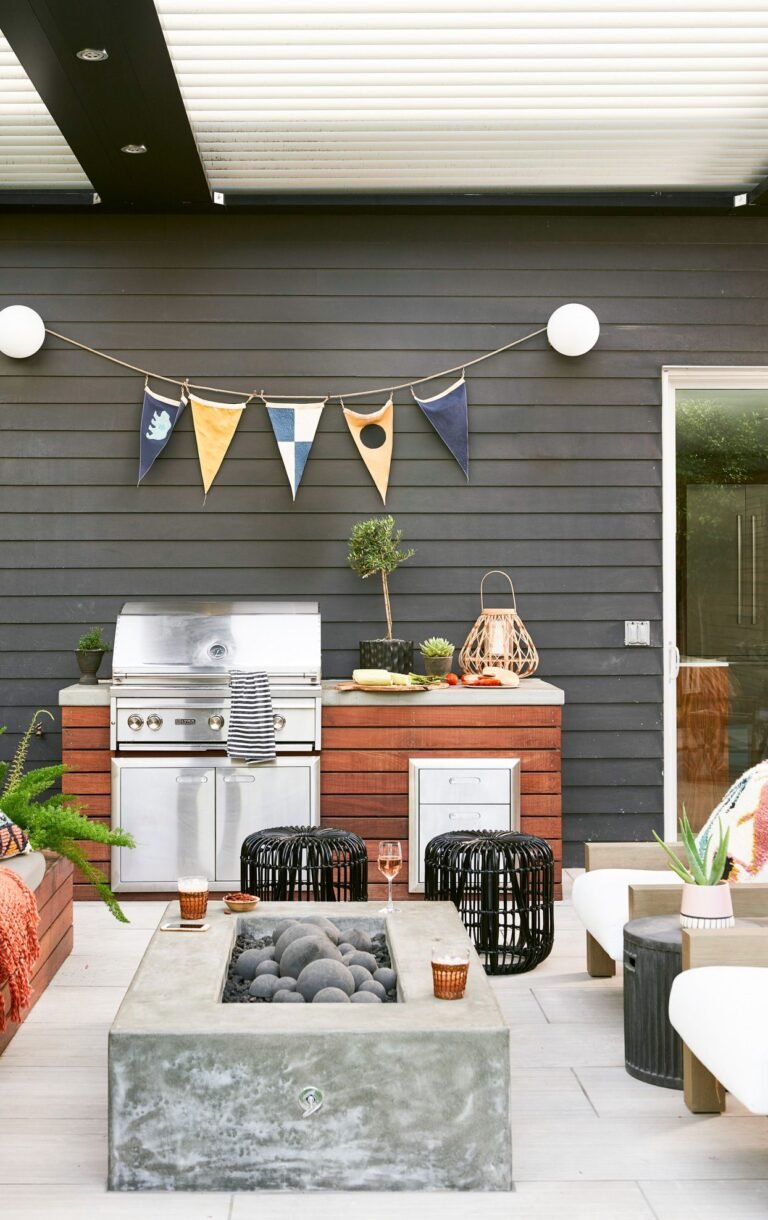The debate between smokers and grills has long intrigued cooking enthusiasts. Each has distinct features that cater to various culinary needs.
The aroma of smoked brisket might evoke memories of summer barbecues, while the sizzle of a steak on a grill is often synonymous with quick, flavorful cooking. Both smokers and grills claim their spots in backyards, but what sets them apart?
Understanding the key differences between smokers and grills can be crucial for anyone who loves to cook outdoors. Smokers are designed to cook meat slowly, using smoke to add flavor. On the other hand, grills often cook food quickly over direct heat, offering a charred taste and versatility. This comparison isn’t just about taste—it’s about tradition, convenience, and the type of culinary experience you seek. Whether you’re preparing for a laid-back Sunday or a quick weeknight dinner, your choice between a smoker and a grill can influence the outcome of your meal. Read on as we explore the essentials that differentiate these two champions of the patio, helping you make an informed decision for your next outdoor feast.

Smokers And Grills: The Basics
Choosing between a smoker and a grill can shape the way you cook outdoors. Each offers a unique method of cooking that impacts flavor and texture. Let’s dive into what sets them apart.
What Is A Smoker?
A smoker is a cooking appliance designed for low and slow cooking. It uses smoke to both cook and flavor food.
- Low temperatures: Typically ranges from 225 to 275 degrees Fahrenheit.
- Long cooking times: Can take hours or even days.
- Indirect heat: Food is not placed directly over the heat source.
- Wood chips or pellets: These provide the smoke and come in various flavors.
What Is A Grill?
Grills are for direct, high-heat cooking. They sear and cook food quickly.
- High temperatures: Can reach upwards of 400 degrees Fahrenheit.
- Quick cooking: Ideal for steaks, burgers, and veggies.
- Direct heat: Food is cooked over the flame or heat source.
- Charcoal or gas: Common fuel sources for grills.
:max_bytes(150000):strip_icc()/Web_4000-sea-primary-plate-charcoal-grills-rkilgore-0897-f850a8d3df67478c9b531867368f8d9c.jpg)
Heat Source And Temperature Control
Let’s talk about heat source and temperature control in smokers and grills. This part is key to cooking meat right. Both use heat differently. This means the taste, texture, and cooking time change.
Fuel Types For Smokers And Grills
Smokers and grills use different fuels. Wood, charcoal, gas, and electric are common. Each one gives a unique flavor. Wood and charcoal are favorites for strong taste. Gas and electric offer more control and are easier to use.
Managing Heat In Smokers Vs. Grills
Controlling heat is different in smokers and grills. Smokers cook slow and low. They need steady heat for hours. Grills cook fast with high heat. This means flipping and moving food often. Knowing this helps cook meat just right.
Flavor Profiles: Smoke Vs. Sear
When choosing between smokers and grills, flavor is a big deal. Each method gives food a unique taste. Let’s dive into the differences.
The Smoky Taste From Smokers
Smokers are all about that low and slow cooking. They use wood, giving a deep smoky flavor. This taste is perfect for meats like brisket and ribs. It’s a flavor you can’t rush.
- Long cook times infuse the smoky aroma
- Wood types like hickory or oak change the taste
- Meats get a rich and complex flavor profile
The Charred Flavor From Grills
Grills are the kings of the sear. They cook hot and fast. This creates a charred, crispy outside. It’s all about that grill mark flavor.
- High heat gives a quick sear and locks in juices
- Direct flame adds a unique grill taste
- Marinades and rubs shine with grill’s high heat
Smokers and grills both offer tasty results. Your choice depends on the flavor you crave. Happy cooking!
Cooking Time Comparison
Understanding the cooking time is key to mastering outdoor cooking. Smokers and grills differ vastly in how they cook food. Let’s explore these differences to help you choose the right method for your meal.
Low And Slow With Smokers
Smokers are all about patience and flavor. They cook meat over hours. This breaks down tough fibers. It makes the meat tender and infuses smoky taste. You might smoke a brisket for 12 hours. It’s a long wait, but the result is worth it. Perfect for weekends or days you have more time.
Fast And Hot Grilling Techniques
Grills offer a quick way to cook. They use direct heat to sear meats. This locks in juices and creates a crispy outside. You can grill burgers in minutes. It’s ideal for a busy day. Grilled veggies also take just a few minutes. Grills are about speed and convenience.
Types Of Food Best Suited
Choosing the right cooking method makes meals delicious. Smokers and grills offer unique flavors. Let’s explore the best foods for each.
Meats For Smoking
Smoking cooks food slowly. It uses low heat and smoke. This method is perfect for:
- Beef brisket – gets tender and flavorful.
- Pork shoulder – becomes juicy and falls apart easily.
- Ribs – meat falls off the bone.
- Chicken – stays moist, soaks up smoke taste.
These meats need many hours to cook. They absorb smoke and become tasty.
Foods Ideal For Grilling
Grilling cooks food fast. It uses high heat. Best for foods that cook quickly. Ideal foods include:
- Steak – gets a charred outside, stays juicy inside.
- Burgers – develop a crispy outer layer, remain moist inside.
- Chicken breasts – cook quickly, get grill marks.
- Veggies – like peppers and zucchini, become tender and charred.
Grilling gives food a crispy texture. It’s great for a quick meal.
Space And Size Considerations
When choosing between a smoker and a grill, space is a crucial factor. Your decision affects how much room you’ll need. Let’s explore the space and size considerations of each option to find the best fit for your outdoor cooking area.
Footprint Of Smokers
Smokers often need more space. They come in various shapes and sizes. Traditional offset smokers have a long, horizontal design. They take up more room than other types. Vertical smokers save ground space but are tall. Consider these points:
- Length: Offset smokers can be several feet long.
- Width: Adding space for airflow around the smoker is important.
- Height: Vertical smokers need clear overhead space.
Check smoker dimensions and compare them to your available space. Remember, a smoker’s footprint includes extra space for safety and ease of use.
Compactness Of Grills
Grills are often more compact than smokers. They fit better in small patios or balconies. Here are key points about grill sizes:
- Shape: Grills are typically round or square, maximizing space.
- Portability: Some grills are designed to move easily.
- Storage: Grills often have a smaller height, fitting under covers.
Measure your space before buying a grill. Ensure there’s enough room to cook comfortably and safely.
Ease Of Use And Maintenance
When choosing between smokers and grills, consider ease of use and maintenance. Each has its own set of steps. Some find smokers more hands-off while grills demand more attention. Maintenance varies too. Let’s explore these differences.
Operating A Smoker
Smokers excel in slow-cooking meats. They require patience and time. Users must monitor temperature but not as often as grills. Smokers maintain heat well, making them user-friendly. Wood chips or pellets often fuel them. This creates a unique flavor. The key is to let the smoker work its magic slowly.
Cleaning And Upkeep Of Grills
Grills need regular cleaning to stay in shape. After each use, a grill brush comes in handy. It scrapes off leftover food bits. Emptying ash and grease is a must for a clean grill. Stainless steel grills resist rust, making them easier to maintain. Covering the grill keeps it safe from weather. Regular checks ensure a long-lasting grill.
Cost Implications And Budget
Choosing between smokers and grills involves money. Let’s explore costs.
Investment In A Smoker
Smokers often cost more upfront. They are for slow cooking. This means flavor but also higher price.
- Quality smokers start at $300.
- High-end models can reach $1000+.
Wood, pellets, or charcoal add to the cost. Yet, they last long. A good smoker serves for years.
Affordability Of Grills
Grills are more budget-friendly. They cook fast. Many types exist.
| Type | Price Range |
|---|---|
| Charcoal Grills | $50 – $400 |
| Gas Grills | $150 – $600 |
| Electric Grills | $100 – $300 |
Grills need fuel too. Charcoal, gas, or electricity. Costs vary.
Think of your budget. What fits? Smoker for flavor? Grill for speed?
Health And Safety Aspects
Choosing between smokers and grills involves health and safety decisions. Both cooking methods have unique risks and benefits. It’s important to know how they affect your health and safety. Let’s dive into the key aspects.
Smoke Inhalation And Food Safety
Smoke adds flavor to your food, but it has risks. Smokers create more smoke than grills. This can lead to more inhalation of harmful substances. Proper ventilation is crucial. Always smoke food outside to reduce risks.
Food safety is also a concern. Smokers cook at low temperatures over a long time. This can be a problem if not done right. Bacteria can grow. Always use a meat thermometer. Make sure your food reaches a safe temperature before eating.
Grilling And Carcinogen Concerns
Grilling at high temperatures can create carcinogens. These are chemicals that might increase cancer risk. Charring meat, poultry, or fish can cause this. Avoid cooking at very high temperatures. Try not to burn your food.
Marinating can reduce these concerns. It creates a barrier. Fewer harmful chemicals form. Choose lean cuts of meat. Fat dripping on flames can increase smoke and carcinogens. Keep your grill clean. This helps to reduce chemicals from old food.

Making The Choice: What’s Right For You?
Choosing between a smoker and a grill shapes your BBQ experience. Taste, convenience, and type of cooking play a part in this decision. Let’s explore how to pick the perfect fit for your backyard feasts.
Considering Your Bbq Goals
Think about your endgame. Do you crave the slow-cooked, smoky flavor of brisket? Or do you prefer quick, seared steaks? Smokers excel at low and slow cooking. Grills are best for high heat and fast cooking times.
- Smoked meats: Choose smokers
- Fast grilling: Go for grills
Lifestyle And Preference Alignment
Match your choice with your lifestyle. Do you enjoy tending to food for hours? Or do you want a quick meal? Smokers require attention and time. Grills offer speed and ease.
| Smokers | Grills |
|---|---|
| Long cook times | Quick cook times |
| Rich flavor | Direct heat |
| Weekend projects | Weeknight dinners |
Frequently Asked Questions
What’s The Difference Between Smoking And Grilling?
Smoking uses low heat over a long period, infusing food with a smoky flavor. Grilling employs high heat for quick cooking, providing a charred surface.
Can You Grill On A Smoker?
Yes, some smokers are designed for both smoking and grilling. They have adjustable features to control temperature suitable for grilling.
Which Is Healthier, Smoking Or Grilling?
Grilling is often considered healthier than smoking. It uses less fat and the cooking time is shorter, reducing exposure to potentially harmful smoke.
What Types Of Food Are Best For Smoking?
Meats like brisket, ribs, and pork shoulder are ideal for smoking. They benefit from the slow cooking process that tenderizes and adds flavor.
Conclusion
Deciding between smokers and grills depends on taste and cooking style. Smokers offer that deep, smoky flavor for patient cooks. Grills give quick, high-heat cooking for sear lovers. Both have benefits for outdoor cooking fans. Your choice shapes the backyard barbecue experience.
Want slow-cooked brisket? Go for a smoker. Prefer fast, seared steaks? Pick a grill. Think about what you enjoy eating. Then choose the best fit for your patio feasts. Happy grilling, or smoking, whichever you pick!






